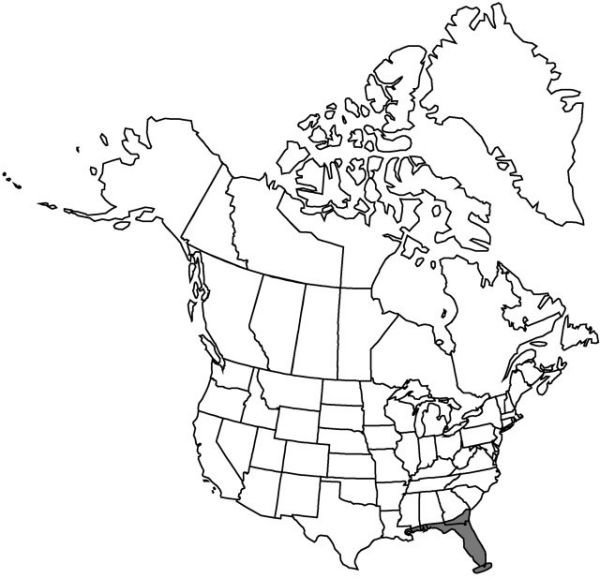Difference between revisions of "Aletris lutea"
Bull. New York Bot. Gard. 1: 278. 1896.
Common names: Yellow colic-root
Endemic
imported>Volume Importer |
imported>Volume Importer |
||
| Line 51: | Line 51: | ||
|publication year=1896 | |publication year=1896 | ||
|special status=Endemic | |special status=Endemic | ||
| − | |source xml=https:// | + | |source xml=https://bitbucket.org/aafc-mbb/fna-data-curation/src/2e0870ddd59836b60bcf96646a41e87ea5a5943a/coarse_grained_fna_xml/V26/V26_41.xml |
|genus=Aletris | |genus=Aletris | ||
|species=Aletris lutea | |species=Aletris lutea | ||
Latest revision as of 21:15, 5 November 2020
Leaves 7–18 × 1–2.6 cm; blade bright green, linear to lanceolate. Scape 5–10 dm. Flowers: perianth usually yellow to golden yellow, rarely white, cylindrical, 9–12 mm, more than 2.5 times as long as broad, lobes spreading. Fruits: beaks gradually narrowed distally. 2n = 26.
Phenology: Flowering spring.
Habitat: Seasonally wet to flooded pine flatwoods, savannas, bogs
Elevation: 0 m
Distribution

Ala., Fla., Ga., La., Miss.
Discussion
A white-flowered form of Aletris lutea was described as forma albiflora E. T. Browne. Hybrids of A. lutea × obovata occur commonly in intermixed populations and have pale yellow corollas of intermediate shape (V. I. Sullivan 1973). These hybrids have been named as A. ×tottenii E. T. Browne.
Selected References
None.
Lower Taxa
None.